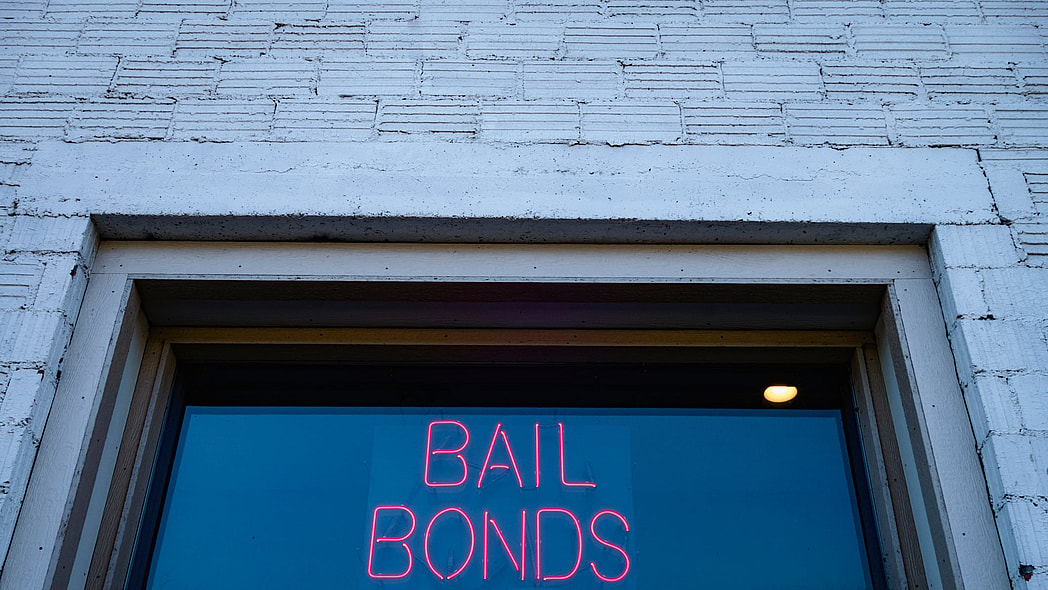There is no such thing as a “purge law.”
Illinois’ Pretrial Fairness Act is being wrongly compared to The Purge—the movie franchise where all crimes, including murder, are allowed for a 12-hour period. But what the law actually does is end the cash bail system in the state to ensure that people are not being incarcerated simply because they’re poor.
Most people caught up in the criminal legal system live below the poverty line. The cash bail system, which was never about public safety and was designed to make sure people show up for trial, instead criminalizes poverty and aids mass incarceration—which is why it’s become a recent target of prison reform. Prosecutors and judges use pretrial incarceration as leverage to coerce people into taking plea deals in cases where prosecutors likely can’t present compelling evidence at trial to get a conviction. The effects of pretrial detention are long-lasting and life-altering.
Chicago’s Cook County Jail is one of those pretrial detention centers where 6,000 people are incarcerated pre-trial—and it’s one of the worst. At least 60 people have died in Cook County Jail since 2017.
I am a public defender who represents people at Rikers Island, the infamous pretrial detention center in New York City where 16 people died last year and 14 have already died this year—and even I was floored to learn that the crisis happening at Cook County Jail may be worse.
The Pretrial Fairness Act is a modest reform—so modest in fact, former Republican Governor Chris Christie supported and signed a similar bill in New Jersey in 2014.
The law does not mean that people are exempt from going to jail pretrial, as critics claim. People can and will still be detained. Under the new law, instead of the existing cash bail system—where anyone with money can be released regardless of whether they pose a danger to public safety while poor people languish behind bars for nonviolent offenses—the new system would actually acknowledge both the presumption of innocence and public safety, two factors that cash bail never considers.
Under the new law, people charged with a crime can be detained if a prosecutor presents evidence to a judge that a person is 1) a threat to public safety, 2) a flight risk from prosecution, 3) violated any terms of their release or 4) were simply accused of mostly felony crimes—despite the numerous infographics floating around erroneously claiming that judges and prosecutors will be unable to detain people accused of murder and other violent crimes. What the law does is establish a higher standard for detainment.
We are endlessly confronted with the human rights abuses raging throughout America’s prison industrial complex. Yet, when we assert that these abuses persist because the criminal system is working as designed to maintain racial and social inequity, we are told to preserve our faith in the system and to instead accept modest reform instead of wholesale change. But when reform comes, we see massive, fearmongering campaigns designed to erode public support for commonsense policies.
The role that the media plays in quashing reform efforts cannot be overstated. It’s no coincidence that we are seeing misleading stories on large platforms with Black audiences like the Shade Room and Baller Alert. This is a concerted effort by right-wing Republicans and neoliberals who want to lend legitimacy to their racist initiatives by getting Black people to internalize propaganda so we oppose policies designed to protect and keep us out of jail.
Another deliberately engineered lie is that the Pretrial Fairness Act will prevent police from making arrests. Police in Illinois can arrest anyone at any time and that won’t change with the Pretrial Fairness Act. The new law encourages police to write tickets for lower-level offenses instead of unnecessarily arresting and detaining people. People charged with misdemeanors and nonviolent crimes will be able to fight their cases while free instead of waiting in jail because they don’t have money for bail.
Further, while Chicago police are engaging in “copaganda” by insisting this law is preventing them from making arrests, it’s important to remember the law will not go into effect until Jan. 1. This is an organized campaign to prevent necessary reform.
We’re supposed to live in a civil society based on the presumption of innocence. People who are legally innocent should not die in custody awaiting their trial. But it is happening every day.
The Pretrial Fairness Act will change that, despite the disingenuous stories you are seeing aimed at undermining support for reform. There is no “purge law.” There is only a change that affords people more rights and ensures their freedom is not tied to how much money they have. It’s a change that will prevent, not create, harm.

Olayemi Olurin is a movement lawyer and a political commentator in New York City.
TheGrio is FREE on your TV via Apple TV, Amazon Fire, Roku, and Android TV. Please download theGrio mobile apps today!


